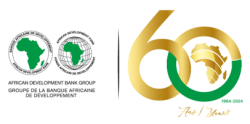
Abidjan, Ivory Coast — The Board of Directors of the African Development Bank Group has approved grants of $34,796,402.40 to enhance resilience and adaptation to climate disaster risks for vulnerable communities in Malawi and Zimbabwe.
Under the Bank Group’s Africa Disaster Risk Financing (ADRiFi) initiative, the Mitigating Fragility through the Africa Disaster Risk Financing Programme in Southern Africa Project will bolster institutional capacity for climate risk preparedness and management; increase financial protection against climate disaster risks through sovereign climate disaster risk transfer; and promote the adoption of index-based crop insurance to mitigate against drought and other production risks at the micro-level.
Malawi and Zimbabwe face significant climate hazards, such as droughts, tropical cyclones, and flooding, but lack adequate mechanisms for climate risk management and adaptation. Both countries are particularly vulnerable to such climate shocks as drought, flooding and tropical cyclones, which contribute to their fragility. Strengthening disaster risk management, improving early warning systems, and enhancing institutional arrangements are crucial for effective preparedness and resilience in these countries.
Under the project, insurance payouts will provide timely and adequate financial protection to mitigate losses incurred from climate-related disasters, safeguarding households, and businesses from falling into poverty or bankruptcy. Climate risk insurance is expected to lead to behavioural changes among beneficiaries, such as increased investment in climate-resilient livelihoods or savings for future insurance premiums. This project will build on the successes of the ADRiFi program and the valuable contributions from our partners, which have significantly enhanced the financial resilience of both Malawi and Zimbabwe. Notably, during the El Niño-induced drought season of 2024/2025, African Risk Capacity, the Bank’s partner on ADRiFi, disbursed over $45 million to support farmers affected by the drought. This funding has provided crucial food assistance and recovery interventions, helping communities to rebuild and thrive in the face of adversity.
The project is aligned to the Bank’s High 5 Priorities, especially Feed Africa and Improve the Quality of Life of Africans. It also aligns with the Bank’s 10-year strategy (2024-2033) and will contribute to the Bank’s Country Strategy for Malawi which focusses on supporting economic diversification through investments in agriculture infrastructure and value chains.



